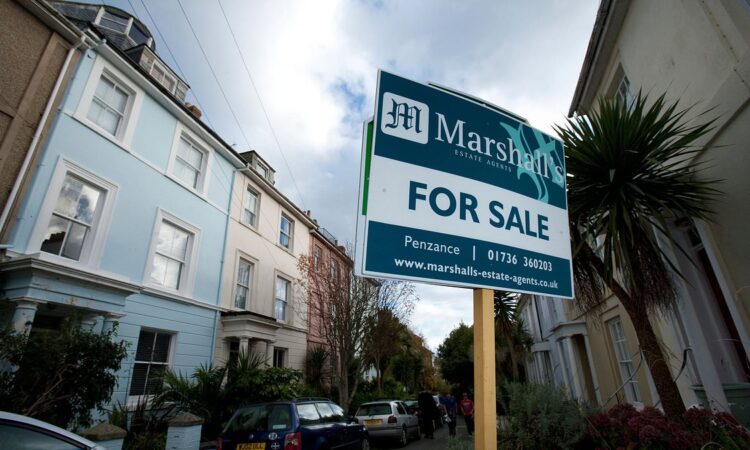
- New holiday let rules aim to prevent people being locked out of housing market
- Rules won’t apply to those renting out main home for less than 90 nights a year
A clampdown on new holiday lets has been welcomed as a way to stop local people from being locked out of buying a property in their community.
The Government said the new measures being introduced in the summer will ensure they can afford to live in the place they call home.
In popular tourist areas, residents say high numbers of short-term lets listed on websites such as Airbnb are preventing them from being able to move on to, or up, the property ladder.
A mandatory national registration scheme will be introduced to help councils understand the extent of short-term lets in their area and the effects on their communities.
A new planning ‘use class’ will also be created for short-term lets, meaning council officials would be able to refuse permission for a home to be converted into a holiday let. Existing properties won’t need to apply for permission, however.
The rules will not apply to people renting out their main home for less than 90 nights a year, while hotels, hostels and B&Bs are also unaffected by the changes.
Perhaps surprisingly, holiday let platforms such as Airbnb And Sykes Holiday Cottages said they welcomed the changes.
Amanda Cupples, of Airbnb, said: ‘The introduction of a short-term lets register is good news for everyone.
‘Families who host on Airbnb will benefit from clear rules that support their activity, and local authorities will get access to the information they need to assess and manage housing impacts and keep communities healthy, where necessary.’
And Ben Edgar Spier, of Sykes Holiday Cottages, said: ‘The announcement of the registration scheme for England’s short-term letting industry has the intention to track the size and impact of the sector and ensure short-term lets are safe, something which Sykes fully supports.
‘Short-term lets are the economic lifeblood of many parts of the UK and a register to provide accurate data was clearly needed before any further regulation risks unforeseen impacts on communities and visitors alike.
Short-term lets are the economic lifeblood of many parts of the UK
‘We welcome the registration scheme being national, mandatory, and presumably online. Our hope and expectation is that it will give our market some much needed clarity and drive compliance across the country.’
However, he also called on the Government to create more housing through repurposing vacant buildings.
‘On the target to deliver one million homes this Parliament, we note that there are far more underused and vacant buildings in existence as well as land with planning permission, all of which contribute far less if anything to local economies, compared with holiday lets,’ Spier said.
‘We would urge the Government to consider measures to incentivise the bringing of those buildings and land into use to boost housing supply.’
How will the new rules be enforced?
North London estate agent Jeremy Leaf, insisted that any new rules would need to be properly enforced to ensure they worked long term.
He said: ‘The aim of the policy to give local people, however you may define them, improved choice of homes to buy and to rent.
‘However, one size does not fit all and local authorities should be given the discretion to apply the rules depending on issues in their area. For instance, if there is high volume of holiday lets then that may need to be balanced out to make sure there is sufficient range of other properties available to buy and to rent.
‘On the other hand, a policy which is too prescriptive may be damaging in an area with relatively low quantity of holiday lets.
‘The key point is whether this is just politicking, and how, and when it is going to be introduced. From what we can see, there is very little enforcement of existing rules so one wonders what the point is of stricter regulations if existing rules are not enforced.’
The Government said the changes were part of its long-term plan for housing, which it hoped would ‘unlock more of the homes this country needs’.
Its target is to deliver one million homes this Parliament.
It hopes to introduce the new holiday let rules from this summer.
Secretary of State for Levelling Up Housing and Communities, Michael Gove said:
‘Short-term lets can play an important role in the UK’s flourishing tourism economy, providing great, easily-accessible accommodation in some of the most beautiful parts of our country.
‘But in some areas, too many local families and young people feel they are being shut out of the housing market and denied the opportunity to rent or buy in their own community.
‘So the Government is taking action as part of its long-term plan for housing. That means delivering more of the right homes in the right places, and giving communities the power to decide.
‘This will allow local communities to take back control and strike the right balance between protecting the visitor economy and ensuring local people get the homes they need.’
